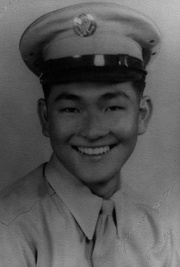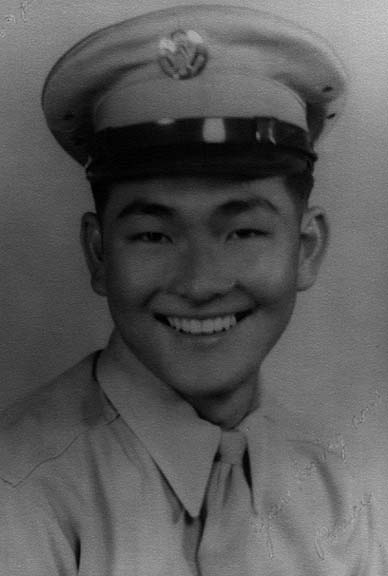
Japanese American Military Experience Database

Bruce Teruo Kaji
Gender
Male
Birth date
1926-5-9
Place of birth
Los Angeles CA, U.S.A.
Inducted
1945-2-27, Ft. MacArthur CA
Enlistment type
Draftee
Service branch
Army
Service type
War
Unit type
Combat
Units served
795th M.P. Bn., Manila, Philippines
MISLS D-5 (Graduated Snelling, Sept. 1945)
MISLS D-5 (Graduated Snelling, Sept. 1945)
Military specialty
Translator 207
Military Intelligence
Military Intelligence
Stationed
USA: Ft. Snelling, MN
Other Countries: Japan; Philippines
Other Countries: Japan; Philippines
Separated
Camp Beale CA
Unit responsibility
Military Intelligence Language Service translation, interrogation and interpreting of captured prisoners of war from the Japanese Army that fought in the Pacific.
Personal responsibility
To translate pleadings of prisoners who were suspected of being war criminals in their case before the wartime tribunal for war crimes.
Major battles (if served in a war zone)
None
Awards, medals, citations (individual or unit)
World War II Victory Medal
Living conditions
We were billeted in tents close to Manila's city hall which had been bombed out. Tropical weather with high humidity made sleeping in hammocks better than on cots. We were in a compound surrounded by a barbed wire fence to keep the local people, who where homeless or starving, from coming in and stealing our personal possessions. Within the compound was another compound surrounded by barbed wire fencing where the P.O.W.'s were billeted waiting to be shipped back to Japan. They did all the chores, cooking, cleaning, etc. around the camp. The food was not spectacular, but we did have rice. Since I did not smoke or drink, I passed these on to the P.O.W.'s who were very grateful. They entertained us with shibai's or Japanese skits and singing.
Most vivid memory of military experience
Driving out to Lupow P.O.W. camp where newly captured Japanese soldiers had to be interviewed and cleared. The Huks were fighting for their independence against the Philippine Government and sporadic gun fire could be heard as my Filipino guard and I flew on our jeep over the bumpy road to the POW camp. The most vivid memory I have is of the individual soldiers, who were being interviewed, standing in front of me--their whole body shaking in fear. As a 20 year old, I had never faced a situation like this before in my life. They were not trained like U.S. personnel to give only your name, rank and serial number. They gave us all the information we asked for. I think that most of them were expected to commit suicide and die before they were captured, but many were eager to go home.
Missed most whilst in the military
Because the Niseis looked like the former enemy, it was not wise for us to travel outside our compound without going in groups or for short distances. I did not have a memorable assignment, as I felt like I was a prisoner in a sense because I was Japanes American.
Most important thing, personally, to come from military experience?
Seeing the bombed out buildings and homes in both the Philippines and Japan. I find that man who possesses the brainpower to resolve problems among other people certainly did a poor job of communicating amongst one another. The many lives that were lost, the materials, equipment, cannons, fighting equipment, planes and all were used to kill one another... and all that was lost capital. War did not produce anything that man can utilize for improving one's standard of living, educating the multitude or bringing understanding and peace to our world. It takes good leaders in all of the countries working together to accomplish this. However, leadership that is honest, sincere and dedicated is hard to find. Usually, someone has either power, money and influence predominantly on their agenda and not the general populace.
Additional information
I have felt that Japanese Americans are a special group of people that have contributed much to this country through their education and abilities, perserverence and sacrifice. The Issei generation who immigrated in the 1800's and then their children. The many races and nationalities that have immigrated to this country all have contributed to the assimilation, growth, success of these United States, but J.A.'s have done a great job even under most adverse conditions. Their contribution and sufferings are most worthy of being documented and recorded for all Americans to study, evaulate, understand and appreciate. I feel Japanese Americans have contributed much to the American Way of life that is considered a role model for other ethnic groups to follow. I think that the Japanese culture and way of life has definitely influenced by their presence, participation and activism.


